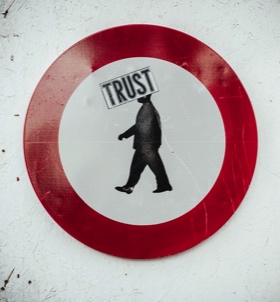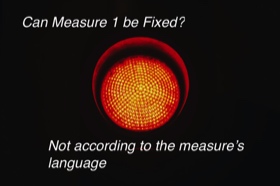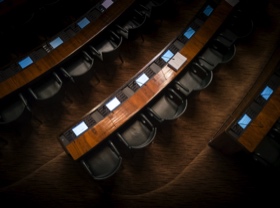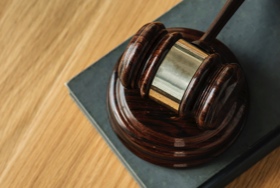
Can the Legislature Fix Measure 1?

Supporters of Measure 1 claim that churches and charities should not worry about the constitutional measure because the legislature can exempt churches and charities or by limiting whose private information they would have to disclosed.
The claims are admissions that Measure 1 does, in fact, mandate churches and charities to disclose the private information of all their contributors or members.
There are a number of reasons why the claims are not reassuring. Let's look at them.

The legislature could try to limit what must be disclosed, but there is no guaranty that it will enact such limits.
North Dakotans should vote based on what the measure says, not the "assurances" of some of its supporters.
Remember, Measure 1 is a constitutional amendment. It could be around years, even decades. Voters have a responsibility when voting on a constitutional amendment to protect citizens from negative consequences not just now, but also for future generations.

The legislature may not be able to exempt churches and charities. Subsection 2 of Section 1 of the amendment states:
The legislative assembly shall implement and enforce this section by enacting, no more than three years after the effective date of this article, laws that require prompt, electronically accessible, plainly comprehensible, public disclosure of the ultimate and true source of funds spent in any medium, in an amount greater than two hundred dollars, adjusted for inflation, to influence any statewide election, election for the legislative assembly, statewide ballot-issue election, or to lobby or otherwise influence state government action.
The measure mandates that the legislative assembly pass the disclosure law, but it does not give the legislature discretion to limit the scope of the disclosure.
In addition, Subsection 1 of Section 4 of the measure states: "Laws may be enacted to facilitate, safeguard, or expand, but not to hamper, restrict, or impair, this article." (emphases added.)
When it comes to self-executing constitutional amendments like Measure 1, the legislature can only do what is authorized by the measure. Without clear authorization, the voters might have to pass another constitutional amendment before the legislature could limit the disclosure mandate.
Until then, any attempt to remove churches and charities from the mandated disclosure could be unconstitutional.

Even if the legislature did try to exempt churches and charities, the ethics commission created by Measure 1 could legally ignore the exemptions.
Section 3, Subsection 2 states:
The ethics commission may adopt ethics rules related to transparency, corruption, elections, and lobbying to which any lobbyist, public official, or candidate for public office shall be subject, and may investigate alleged violations of such rules, this article, and related state laws. (emphasis added.)
“Article” refers to the entire new article of the North Dakota Constitution Measure 1 would create.
The unelected ethics commission, therefore, would have the authority to enforce and interpret the disclosure requirement separately and independently from any laws the legislature might enact.

Similarly, the entities the legislature must authorize to enforce the disclosure mandate could ignore any limits set by the legislature.
Subsection 2 of Section 1 of the amendment states:
The legislative assembly shall vest by law one or more entities with authority to implement, interpret, and enforce this section and legislation enacted thereunder. (emphasis added.)
The “section” is the first section of the measure, the one that mandates disclosure. It does not mean the laws passed by the legislature. The clear language of the amendment means that entities would not be limited by any laws the legislature passes.

Measure 1 creates a right to sue to anyone who thinks that the laws passed by the legislature are not good enough.
The measure states about the mandated disclosure:
If the laws or rules enacted or an implementation, interpretation, or enforcement action taken under this section fail to fully vindicate the rights provided in this section, a resident taxpayer may bring suit in the courts of this state to enforce such rights.
This means that anyone can bypass whatever laws the legislature may pass by going to court and claiming that their rights were not “fully vindicated.”
Bismarck, North Dakota
58501
1-888-419-1237
701-223-2519
